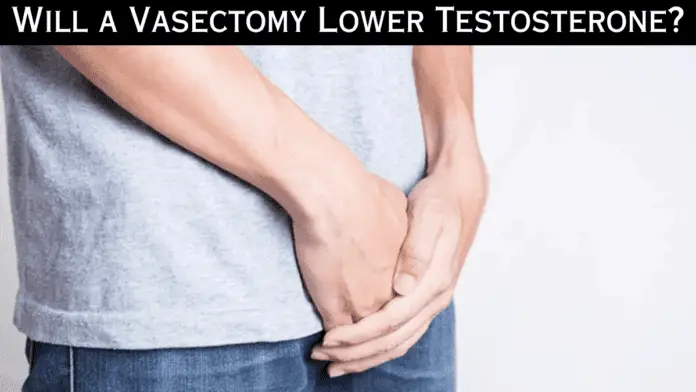
If you’re considering a vasectomy, it’s natural to have questions and concerns about the procedure’s impacts on your health. One common question men ask is, “Will a vasectomy lower testosterone?” In this comprehensive article, we will address this concern head-on, backed by research and evidence-based information.
Understanding Vasectomy and Testosterone
Before we dive into answering the main question, let’s briefly discuss what a vasectomy is and its relationship with testosterone.
What is a vasectomy?
A vasectomy is a surgical procedure that serves as a permanent form of male birth control. During the procedure, the vasa deferentia (the tubes that carry sperm from the testicles) are cut, tied, or otherwise sealed, preventing sperm from releasing during sexual activity.
The Role of Testosterone
Testosterone is the primary male sex hormone responsible for regulating fertility, muscle mass, fat distribution, and red blood cell production. It is produced primarily in the testicles and plays a crucial role in a man’s overall health and well-being.
Debunking the Myth: Will a Vasectomy Lower Testosterone?
The short answer is no, a vasectomy does not lower testosterone levels. A vasectomy only interrupts the sperm transportation pathway, while the production of testosterone remains unaffected.
Research-Backed Evidence
Several studies have been conducted to investigate the impact of vasectomy on testosterone levels. A study published in the Journal of Urology found that there was no significant change in testosterone levels before and after a vasectomy.
Another research conducted by the American Urological Association concluded that vasectomy does not have any long-term effects on the levels of serum testosterone or other hormones.
These research findings debunk the myth and confirm that a vasectomy does not lower testosterone levels.
Addressing Other Vasectomy Concerns
While we’ve established that a vasectomy doesn’t lower testosterone, it’s essential to address other common concerns related to the procedure.
Erectile Dysfunction and Vasectomy
There is no scientific evidence linking vasectomy to erectile dysfunction (ED). ED occurs due to various factors, such as hormonal imbalances, poor blood flow, or psychological issues, none of which are affected by a vasectomy.
Impact on Sexual Drive and Performance
A vasectomy does not influence sexual drive or performance, as it does not affect testosterone levels or interfere with the nervous system. Most men report no changes in their sexual lives post-vasectomy.
Read: How Do You Arouse a Man With Low Testosterone?
FAQs: Will a Vasectomy Lower Testosterone?
Q: Does a vasectomy affect hormone levels?
A: No, a vasectomy does not affect hormone levels, including testosterone.
Q: Can a vasectomy cause erectile dysfunction?
A: There is no scientific evidence linking vasectomy to erectile dysfunction.
Q: Will a vasectomy change my sex drive or performance?
A: A vasectomy does not impact sex drive or performance, as it does not affect testosterone levels or interfere with the nervous system.
Q: Is a vasectomy reversible?
A: While vasectomy reversal is possible through a surgical procedure called vasovasostomy, it is not always successful. Therefore, vasectomy should be considered a permanent form of birth control.
Conclusion
In conclusion, the concern that a vasectomy will lower testosterone levels is unfounded. Research and scientific evidence have consistently shown that there is no significant change in testosterone levels before and after the procedure.
As you consider a vasectomy, it’s essential to consult with a qualified medical professional to address any concerns and ensure you have accurate information about the procedure. Keep in mind that a vasectomy should be considered a permanent form of birth control and does not impact hormone levels, erectile function, or sexual performance.
By providing evidence-based health and wellness information, we aim to empower individuals to make informed decisions about their well-being. Always consult with your healthcare provider before making any decisions related to your health.
Read Also: Do Chia Seeds Lower Testosterone?











